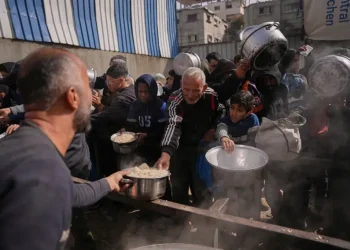Israel Prepares for Hostages’ Return Amid Uncertainty About Their Condition
Health Challenges Await Returning Hostages
Israel is bracing for the return of hostages from Gaza, anticipating severe and life-threatening health complications after more than a year in captivity. While the exact conditions of their imprisonment remain unclear, preparations by Israel’s Health Ministry and the Hostages Family Forum are based on data from previously released captives.
Hostages are expected to suffer from numerous health issues, including:
- Cardiovascular and respiratory problems due to inadequate ventilation.
- Vitamin deficiencies, malnutrition, and starvation leading to dramatic weight loss.
- Cognitive impairment and mental health trauma from isolation and lack of sunlight.
- Physical injuries such as broken bones and mobility challenges.
Hostage Crisis Overview
On October 7, 2023, Hamas militants abducted around 250 people during a deadly cross-border attack, killing 1,200 Israelis. While about 100 hostages remain in Gaza, Israeli officials estimate that at least a third of them are no longer alive.
Medical Teams on High Alert
Doctors are preparing for complex medical conditions, such as:
- Refeeding Syndrome, a potentially fatal reaction to reintroducing food after prolonged starvation.
- Severe mental health symptoms, including speech impairments and emotional withdrawal.
Six hospitals, including two near Gaza, are on standby to treat returning hostages, prioritizing those with acute medical needs. Strict guidelines are in place for their initial care, especially regarding food intake.
Limited Contact and Sensory Accommodations
To minimize trauma, officials are:
- Reducing sensory stimulation in hospital rooms by altering lighting and removing unnecessary items.
- Restricting access to the hostages to direct family and medical staff only.
- Offering temporary housing for those unable to return home immediately.
Psychological Support and Privacy Emphasis
Health professionals emphasize the need for privacy and caution in handling returning hostages.
“The first days are sacred,” said psychoanalyst Ofrit Shapira. “Hostages need space to reunite with their families without intrusion.”
Media and public curiosity are discouraged, with experts warning against direct questioning that could trigger traumatic memories. “Our curiosity doesn’t matter,” Shapira added. “They owe us nothing.”
Support for Families of Hostages
Families of deceased or missing hostages face significant emotional challenges. Experts note that many previously freed captives and their families are volunteering to counsel those now enduring similar ordeals.
Israel has confirmed the deaths of at least one-third of the remaining 90 captives. For families awaiting news of loved ones, the hostage releases act as both a relief and a painful reminder of what might never be.
United in Recovery
Despite their struggles, released hostages and their families are forming strong support networks. “These bonds are like psychological families,” said Hagai Levine of the Hostages Families Forum, highlighting their role in helping survivors adapt and heal.
This article was rewritten by JournosNews.com based on verified reporting from trusted sources. The content has been independently reviewed, fact-checked, and edited for accuracy, neutrality, tone, and global readability in accordance with Google News and AdSense standards.
All opinions, quotes, or statements from contributors, experts, or sourced organizations do not necessarily reflect the views of JournosNews.com. JournosNews.com maintains full editorial independence from any external funders, sponsors, or organizations.
Stay informed with JournosNews.com — your trusted source for verified global reporting and in-depth analysis. Follow us on Google News, BlueSky, and X for real-time updates.













